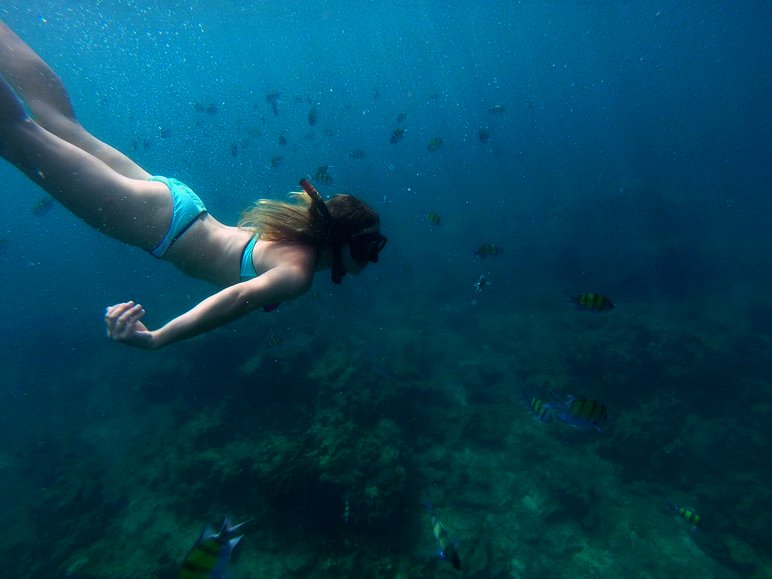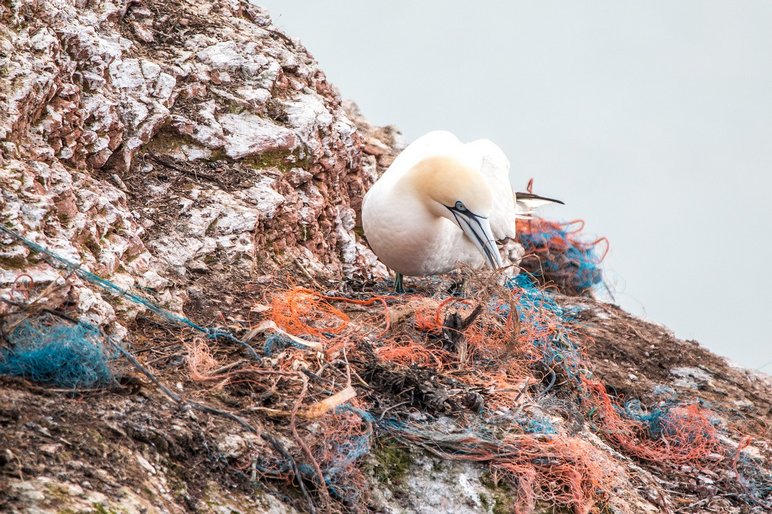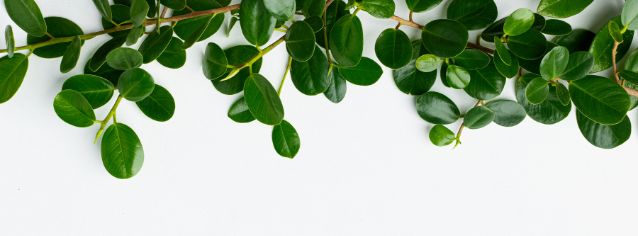I had been well aware that many marine animals are endangered by pollution but I only really woke up to the problem when I arrived at a beach in the Philippines (I wrote about this on our sister site) where we found heaps and heaps of plastic brought in from the ocean by the waves. We decided to spend an hour every day collecting the plastic, did that for a week and ended up feeling like we didn't make any difference really. I did some reading and realized; this phenomenon isn't just about the Philippines... on our travels we have seen this in many other places, including S.E. Asia (Bali, Krabi).
How Many Marine Animals Are Killed by Plastic Each Year?
Well, that seems to be a hard question to answer accurately. There are estimates though, according to UNESCO:
- one million sea birds are killed by plastic each year;
- one hundred thousand marine mammal in general are killed every year;
Industrialised humans have produced a LOT of plastic since the '50s: more than eight million metric tons (half of which was manufactured in the last thirteen years) and much of which is disposed of in improper ways. Let me add that it is not necessarily recycling that is the proper way to dispose of plastic; only around nine percent of plastic waste is recycled, twelve incinerated aka burnt (yay), seventy-nine sits around on landfills or in the ocean. Recently, certain types of plastic-eating fungi have been discovered (also see here) that could be nature's solution to our problems.
About the oceans: annually, around eight million metric tons are dumped into seas and oceans (yay again), according to the UNEP (United Nations Environment Programme) there are circa 46 thousand bits and pieces of plastic floating around every square mile of ocean. Ever heard of the Great Pacific Garbage Patch? The biggest ocean patch of plastic waste in the world? Seventy-nine metric tons? And I don't even wanna get started on the nightmare that's called micro-plastics...
What Animals Are Affected by Water Pollution?
To be more exact, by plastic pollution. Here's a brief list:
Now that's a lot :( Some of the most common ways marine animals die from plastic are:
... and the list goes on, sadly :(
- sea turtles;
- fish;
- aquatic mammals: seals, sea lions, whales and dolphins;
- sea birds, e.g. albatrosses & seagulls.
Now that's a lot :( Some of the most common ways marine animals die from plastic are:
- getting entangled and not being able to fend for themselves or move (or swim away from predators);
- strangling and chocking, suffocation;
- digestive problems after eating plastic;
- habitats destroyed by plastic;
- mating rituals affected by plastic waste;
... and the list goes on, sadly :(
How to Reduce Your Plastic Waste
You can start reducing your plastic waste and other kinds of household waste by:
- expanding your knowledge about how plastic pollution affects the oceans (e.g. Oceans' quizzes and puzzles about plastic pollution, a fun way to learn!)
- saying no to plastic straws (there are stainless steel straws instead)
- ditching lighters (you can use matches instead)
- saying no to plastic bags (use tote bags!)
- using your cash influence ('put your money where you mouth is', as they say - try to buy stuff at zero waste shops!)
- chucking plastic toothbrushes (there are bamboo toothbrushes!)
- saying goodbye to shampoo bottles (either goo 'nopoo' - shampoo-less, only washing hair with water which is what we do, or use solid shampoo bars!)
- prepping packed lunches (if you have the time - take away food & coffee comes with a lot of plastic waste!)
- throwing out your tampons (use menstrual cups - aka 'moon cups' - instead!)
- saying no to plastic bottles (yepp, no more fizzy drinks - aka 'diabetes juice' - refill your own metal or glass bottle instead!)
- saying to deodorants (peppermint, tea tree oil, coconut oil and bicarb make wonderful home-made deodorants, without the plastic pots!)
- volunteering (if you can, e.g. at beach cleanups!)
These are just some ideas, of course (I wrote about them in more detail on our sister site), I'm sure you can brainstorm and come up with more - let me know in the comments section below and I'll include it in this list :)
What Marine Animals Can You Save by Going Vegan?
Here are some of the most popular marine animals treated as objects, resources & food (instead of the intelligent & sentient living beings they are):
– cartilaginous fishes: sharks & skates (similar to rays and yepp, they're eaten in some places);
– ray-finned fish: tuna, salmon, sturgeons, anchovies, cods, herrings, sardines & eels;
– shellfish:
– aquatic mammals: dolphins (check Japan), whales (check Norway), seals;
– reptiles: sea turtles (check turtle farming)
– cartilaginous fishes: sharks & skates (similar to rays and yepp, they're eaten in some places);
– ray-finned fish: tuna, salmon, sturgeons, anchovies, cods, herrings, sardines & eels;
– shellfish:
- molluscs: squids, octopuses, cuttlefish, oysters, clams, mussels & sea snails
- crustaceans: lobsters, crabs, shrimps (or prawns) crayfish, barnacles
- echinoderms: sea urchins (for roe, similar to caviar) & sea cucumbers (seriously!)
– aquatic mammals: dolphins (check Japan), whales (check Norway), seals;
– reptiles: sea turtles (check turtle farming)
...plus any additional animals that get caught in fishing nets in the ocean. So.... a lot. And we haven't really spoken about the effects of overfishing.
Wrap Up: Marine Animals Endangered by Pollution
I wrote a post on how to reduce your plastic waste output and another one recently about what else you can do to preserve the ocean as an individual... and I also wanna remind my readers that although individuals and personal deeds and changes in consumption habits are important, the problem is on a structural level so please support responsible companies!
Thank you for reading this post, we hope you found it helpful :) If you have any questions, suggestions or ideas, you can let us know in the comments section below!











